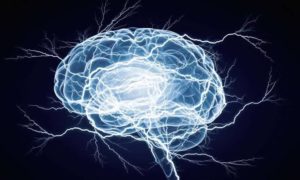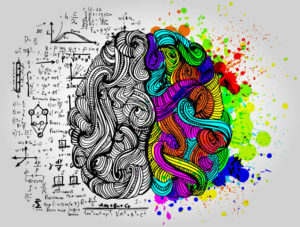
Revelation is described in religion and theology as the phenomenon of disclosing something through active or passive communication with a supernatural being or divine entity. It is a process whereby the hidden God shows Himself to a man in the realm of human reality and the man experiences it as coming from God.
Some believe that revelation is to do with absolute truths about God being discovered while others argue that it is about studying the nature of the universe with a view to understanding and appreciating God’s creation. I would like to sidestep issues of faith and its validity, and propose to review the phenomenon of wahy/revelation where it is a precise, complex and unique communication that links the Prophets to God and is usually the starting point of a religion.
This communication between God and his Prophets is recorded, for example, in the first five books of Moses in the orthodox Judeo-Christian tradition and in the Quran.
Epileptic seizures and their historical descriptions have been linked with revelation and a relationship has been suggested with creativity, genius and unusual leadership abilities. Aristotle was the first to connect epilepsy and genius. He published a catalogue of "great epileptics", which included Socrates.

Several scholars since then, including Bryant (1953), have kept revising this list of great and the mystical figures which includes founders of some religions who may have had epilepsy.
Epilepsy is actually a common neurological disorder of the nervous system diagnosed by the occurrence of at least two seizures, which are not caused by any reversible provoking factors, and demonstrates a tendency towards recurrence. Approximately 5% of people experience at least one seizure in their lifetime and approx. 60 million people worldwide suffer from epilepsy. It involves temporary bursts of excessive electrical activity in different parts of the brain that control bodily sensations and functions as well as our memories and emotions.
There are two important questions one must consider when looking for a link between epilepsy and genius. The first is whether epilepsy can "cause" creativity? Or is it rather that, because not all epileptics are creative, the cases of some of the most gifted people in history who also happened to have epilepsy are merely coincidences? La Plante (1993) and Bear (1995) had claimed that they found an association between epilepsy and giftedness in some people.
When various parts of the brain are suddenly exposed to too much electrical activity, scientists are now able to view and analyze these epileptic seizures with the help of Magnetic Resonance Imaging (MRI) and Electroencephalography (EEG). Because these newly activated parts of the brain control functions such as our sense perceptions, memory, emotion, insight, increased focus and creativity, there appears to be a possibility that epilepsy can cause creativity.

However, this is not so in all, or even the majority of, cases. Results of recent work by scientists who have explored the link between epilepsy and genius are of a more skeptical nature.
My own teacher Peter Fenwick (1997) questioned the widespread labelling of religious figures with temporal lobe epilepsy. He believes that this mythical link may have more to do with the enthusiasm of the authors than to the true scientific understanding. In a review of the subject, neurologist John Hughes (2003) concluded that the majority of famous people who are alleged to have epilepsy did not have this condition. There is no conclusive evidence to support that epileptic seizures or a predisposition to epilepsy is capable of endangering exceptional talents including religious experiences. The occasional concurrence of epilepsy and genius most likely reflects the probability that a common disorder will at times afflict people with uncommon potential. This historical fallacy was also rejected by Cartwright and colleagues (2004) who found no correlation between epilepsy and heightened creativity.
Most attempts to understand the phenomenon of revelation have come from philosophers. Maimonides (1135-1204) is one of those who considered prophecy as a natural phenomenon in the Farabi and Avicenna tradition. He opined that the true reality and quality of prophecy consists in it being an overflow from God through the intermediation of the Active Intellect, towards the rational faculty in the first place and thereafter towards the imaginative faculty.
Albo (1380-1444) differs from that view and proposed that human reason is not capable of comprehending things as they are in reality. There must, therefore, be something higher than the human intellect by means of which the good can be defined and the truth comprehended in a manner that leaves no doubt at all and this can only happen by means of divine guidance. Rosenzweig (1886-1929) adds to this discourse by explaining revelation as a relationship in the form of a dialogue that depends upon the will of God Who chooses to reveal Himself at specific times to specific individuals.

Buber (1878-1965) takes a different position as he considers that revelation is the encounter of the presence of God and not the communication of ideas or instructions. Revelation constitutes a wordless address that in turn stimulates a human response and this response, according to him, does not give rise to a general law but only to a unique and subjective commitment. Heschel (1907-1972) disagrees and asserts that revelation represents an event in which God does communicate His teachings and concerns. He also proposes that the act of revelation is a unique and mysterious event that cannot be reduced to the categories of mystical experience or psychophysical processes. Kaplan (2010) comes up with his own explanation, as he does not see in revelation anything more than a purely subjective experience.
I would steer the discussion towards the concept and understanding of revelation in Islam now. The Quran enshrines how God spoke to Prophet Muhammad as an inspiration or from behind a veil when He pleased and revealed His word portion by portion on his heart or brought to him truthfully through the angel, Gabriel, over a period of twenty-three years. How others perceived revelation and what the Prophet may have said about the phenomenon of revelation, can be known from the Hadith (Sayings of the Prophet).
The first experience of revelation was marked by the appearance of the Angel, Gabriel, who communicated to him the first Divine message in words, which are contained in the first five verses of the Quran. Jabir reports a temporary break in the revelation at this point; followed by an experience after a while when he heard "a voice from heaven and I raised up my eyes, and lo! the Angel that had appeared to me in the cave Hira was sitting on a throne between heaven and earth and I was struck with awe on account of him and returned [home] and said [to my wife] Wrap me up, wrap me up”.
There are reports in the Hadith that the Prophet experienced revelation as a great strain and he perspired even on cold days. There are two reports from Hazrat Umar, the Second Caliph, when he showed others how the Prophet’s face was red and he was drowsy and/or snoring lying down face covered or sitting behind a curtain while having revelation. Thabit narrated how Prophet’s leg rested on his when revelation once came; “it began to make its weight felt to me so much so that I feared my thigh might be crushed”.
There are also accounts of his camel stopping and sitting down when the revelation came.
Aishah, the Prophet’s wife, reports two dream-like experiences and also when he reportedly answered Hisham on the subject "Sometimes it comes to me like the ringing of a bell and that is the hardest on me, then he departs from me and I retain in memory from him what he says; and sometimes the Angel comes to me in the likeness of a man and speaks to me and I retain in memory what he says." There are other reports where the Prophet was in company or giving a sermon that he hung down his head for a while, and his companions also hung down their heads, and when that state was over, he raised his head and narrated what was revealed to him.
Some believe that revelation is to do with absolute truths about God being discovered while others argue that it is about studying the nature of the universe with a view to understanding and appreciating God’s creation. I would like to sidestep issues of faith and its validity, and propose to review the phenomenon of wahy/revelation where it is a precise, complex and unique communication that links the Prophets to God and is usually the starting point of a religion.
This communication between God and his Prophets is recorded, for example, in the first five books of Moses in the orthodox Judeo-Christian tradition and in the Quran.
Epileptic seizures and their historical descriptions have been linked with revelation and a relationship has been suggested with creativity, genius and unusual leadership abilities. Aristotle was the first to connect epilepsy and genius. He published a catalogue of "great epileptics", which included Socrates.

Several scholars since then, including Bryant (1953), have kept revising this list of great and the mystical figures which includes founders of some religions who may have had epilepsy.
Epilepsy is actually a common neurological disorder of the nervous system diagnosed by the occurrence of at least two seizures, which are not caused by any reversible provoking factors, and demonstrates a tendency towards recurrence. Approximately 5% of people experience at least one seizure in their lifetime and approx. 60 million people worldwide suffer from epilepsy. It involves temporary bursts of excessive electrical activity in different parts of the brain that control bodily sensations and functions as well as our memories and emotions.
There are two important questions one must consider when looking for a link between epilepsy and genius. The first is whether epilepsy can "cause" creativity? Or is it rather that, because not all epileptics are creative, the cases of some of the most gifted people in history who also happened to have epilepsy are merely coincidences? La Plante (1993) and Bear (1995) had claimed that they found an association between epilepsy and giftedness in some people.
When various parts of the brain are suddenly exposed to too much electrical activity, scientists are now able to view and analyze these epileptic seizures with the help of Magnetic Resonance Imaging (MRI) and Electroencephalography (EEG). Because these newly activated parts of the brain control functions such as our sense perceptions, memory, emotion, insight, increased focus and creativity, there appears to be a possibility that epilepsy can cause creativity.

However, this is not so in all, or even the majority of, cases. Results of recent work by scientists who have explored the link between epilepsy and genius are of a more skeptical nature.
My own teacher Peter Fenwick (1997) questioned the widespread labelling of religious figures with temporal lobe epilepsy. He believes that this mythical link may have more to do with the enthusiasm of the authors than to the true scientific understanding. In a review of the subject, neurologist John Hughes (2003) concluded that the majority of famous people who are alleged to have epilepsy did not have this condition. There is no conclusive evidence to support that epileptic seizures or a predisposition to epilepsy is capable of endangering exceptional talents including religious experiences. The occasional concurrence of epilepsy and genius most likely reflects the probability that a common disorder will at times afflict people with uncommon potential. This historical fallacy was also rejected by Cartwright and colleagues (2004) who found no correlation between epilepsy and heightened creativity.
Most attempts to understand the phenomenon of revelation have come from philosophers. Maimonides (1135-1204) is one of those who considered prophecy as a natural phenomenon in the Farabi and Avicenna tradition. He opined that the true reality and quality of prophecy consists in it being an overflow from God through the intermediation of the Active Intellect, towards the rational faculty in the first place and thereafter towards the imaginative faculty.
Albo (1380-1444) differs from that view and proposed that human reason is not capable of comprehending things as they are in reality. There must, therefore, be something higher than the human intellect by means of which the good can be defined and the truth comprehended in a manner that leaves no doubt at all and this can only happen by means of divine guidance. Rosenzweig (1886-1929) adds to this discourse by explaining revelation as a relationship in the form of a dialogue that depends upon the will of God Who chooses to reveal Himself at specific times to specific individuals.

Buber (1878-1965) takes a different position as he considers that revelation is the encounter of the presence of God and not the communication of ideas or instructions. Revelation constitutes a wordless address that in turn stimulates a human response and this response, according to him, does not give rise to a general law but only to a unique and subjective commitment. Heschel (1907-1972) disagrees and asserts that revelation represents an event in which God does communicate His teachings and concerns. He also proposes that the act of revelation is a unique and mysterious event that cannot be reduced to the categories of mystical experience or psychophysical processes. Kaplan (2010) comes up with his own explanation, as he does not see in revelation anything more than a purely subjective experience.
I would steer the discussion towards the concept and understanding of revelation in Islam now. The Quran enshrines how God spoke to Prophet Muhammad as an inspiration or from behind a veil when He pleased and revealed His word portion by portion on his heart or brought to him truthfully through the angel, Gabriel, over a period of twenty-three years. How others perceived revelation and what the Prophet may have said about the phenomenon of revelation, can be known from the Hadith (Sayings of the Prophet).
The first experience of revelation was marked by the appearance of the Angel, Gabriel, who communicated to him the first Divine message in words, which are contained in the first five verses of the Quran. Jabir reports a temporary break in the revelation at this point; followed by an experience after a while when he heard "a voice from heaven and I raised up my eyes, and lo! the Angel that had appeared to me in the cave Hira was sitting on a throne between heaven and earth and I was struck with awe on account of him and returned [home] and said [to my wife] Wrap me up, wrap me up”.
There are reports in the Hadith that the Prophet experienced revelation as a great strain and he perspired even on cold days. There are two reports from Hazrat Umar, the Second Caliph, when he showed others how the Prophet’s face was red and he was drowsy and/or snoring lying down face covered or sitting behind a curtain while having revelation. Thabit narrated how Prophet’s leg rested on his when revelation once came; “it began to make its weight felt to me so much so that I feared my thigh might be crushed”.
There are also accounts of his camel stopping and sitting down when the revelation came.
Aishah, the Prophet’s wife, reports two dream-like experiences and also when he reportedly answered Hisham on the subject "Sometimes it comes to me like the ringing of a bell and that is the hardest on me, then he departs from me and I retain in memory from him what he says; and sometimes the Angel comes to me in the likeness of a man and speaks to me and I retain in memory what he says." There are other reports where the Prophet was in company or giving a sermon that he hung down his head for a while, and his companions also hung down their heads, and when that state was over, he raised his head and narrated what was revealed to him.
